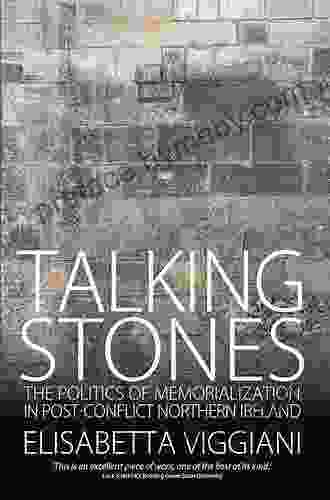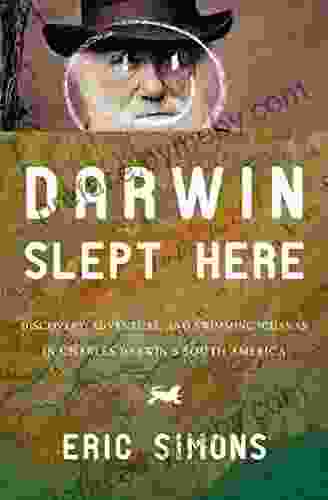The Politics of Memorialization in Post-Conflict Northern Ireland: Unveiling the Intricate Interplay of Politics and Remembrance

5 out of 5
| Language | : | English |
| File size | : | 6030 KB |
| Text-to-Speech | : | Enabled |
| Screen Reader | : | Supported |
| Enhanced typesetting | : | Enabled |
| Word Wise | : | Enabled |
| Print length | : | 288 pages |
: The Shadow of the Past
The conflict in Northern Ireland, known as "The Troubles," left an enduring legacy of pain, division, and trauma. In the aftermath of the Good Friday Agreement in 1998, memorialization emerged as a complex and contested terrain, where the politics of remembrance became intertwined with the quest for reconciliation, peacebuilding, and social cohesion.
The Battle for Historical Narratives
Memorials and commemorations serve as tangible expressions of the past, shaping historical narratives and influencing public memory. In Northern Ireland, competing narratives vie for dominance, reflecting the enduring tensions and complexities of the conflict.
For many unionists, the emphasis is on remembering the sacrifices made by British security forces and Protestant civilians. In contrast, nationalists prioritize the commemoration of republican dead and the injustices experienced by the Catholic community.

The Omagh bombing memorial is a poignant reminder of the devastating impact of the conflict.
Victims, Trauma, and Reconciliation
Memorialization is deeply personal for victims and their families. Memorials can provide a space for grieving, healing, and acknowledging the suffering endured. However, they can also become sites of ongoing pain and conflict, particularly when they are perceived as glorifying violence or perpetuating a partisan narrative.
The quest for reconciliation requires a collective recognition of the trauma inflicted on all communities. Memorials that strive for inclusivity and respect for the diverse experiences of victims can play a crucial role in fostering empathy and understanding.
Public Memory and Social Cohesion
Public memory is shaped not only by memorials but also by educational institutions, media, and other societal institutions. In Northern Ireland, the challenge is to create a shared and inclusive public memory that transcends sectarian divisions.
This requires a balanced approach that acknowledges the experiences of both communities while fostering a sense of common citizenship and a collective commitment to peace and reconciliation.
Institutional Responsibility and Historical Context
Governments and other institutions have a responsibility to ensure that memorialization is fair, balanced, and sensitive to the needs of all victims. They must also recognize the historical context of the conflict and the need to avoid perpetuating divisions.
In Northern Ireland, the creation of the Independent Commission on Information Retrieval (ICIR) was an important step towards addressing the contentious issue of the past. The ICIR's focus on accessing and sharing information about victims and their experiences aims to promote healing, reconciliation, and accountability.
: A Path towards Reconciliation
The politics of memorialization in post-conflict Northern Ireland remains a complex and challenging terrain. However, by embracing inclusivity, empathy, and a balanced approach to historical narratives, it is possible to create memorials that foster reconciliation, peacebuilding, and social cohesion.
Through respectful and sensitive memorialization, we can honor the memory of those who lost their lives and create a shared public memory that unites rather than divides. The journey towards reconciliation is not without its obstacles, but it is a necessary one for the future of Northern Ireland.
5 out of 5
| Language | : | English |
| File size | : | 6030 KB |
| Text-to-Speech | : | Enabled |
| Screen Reader | : | Supported |
| Enhanced typesetting | : | Enabled |
| Word Wise | : | Enabled |
| Print length | : | 288 pages |
Do you want to contribute by writing guest posts on this blog?
Please contact us and send us a resume of previous articles that you have written.
 Book
Book Novel
Novel Page
Page Chapter
Chapter Text
Text Story
Story Genre
Genre Reader
Reader Library
Library Paperback
Paperback E-book
E-book Magazine
Magazine Newspaper
Newspaper Paragraph
Paragraph Sentence
Sentence Bookmark
Bookmark Shelf
Shelf Glossary
Glossary Bibliography
Bibliography Foreword
Foreword Preface
Preface Synopsis
Synopsis Annotation
Annotation Footnote
Footnote Manuscript
Manuscript Scroll
Scroll Codex
Codex Tome
Tome Bestseller
Bestseller Classics
Classics Library card
Library card Narrative
Narrative Biography
Biography Autobiography
Autobiography Memoir
Memoir Reference
Reference Encyclopedia
Encyclopedia James Robert
James Robert Eric Butterworth
Eric Butterworth Eric Schlosser
Eric Schlosser Gene Fowler
Gene Fowler John Graham
John Graham Elizabeth Strout
Elizabeth Strout Emma Carlson Berne
Emma Carlson Berne Katherine Watson
Katherine Watson Michael Grant
Michael Grant Elizabeth Barlow Rogers
Elizabeth Barlow Rogers Kathy Gunst
Kathy Gunst Philip Kramer
Philip Kramer Emily Riehl
Emily Riehl Elisha Goldstein
Elisha Goldstein Emily Wilson
Emily Wilson Elizabeth Faidley
Elizabeth Faidley Walter Lippmann
Walter Lippmann Michelle Roehm Mccann
Michelle Roehm Mccann Lisa Trumbauer
Lisa Trumbauer Emma Hardy
Emma Hardy
Light bulbAdvertise smarter! Our strategic ad space ensures maximum exposure. Reserve your spot today!
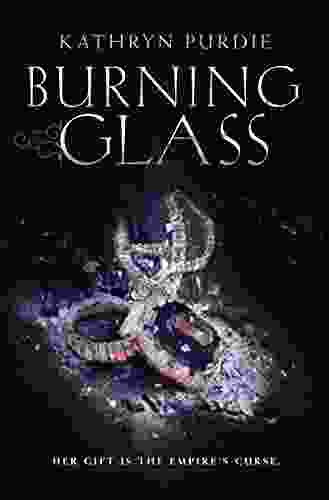
 Samuel WardBurning Glass: A Literary Masterpiece that Illuminates Art, Mystery, and the...
Samuel WardBurning Glass: A Literary Masterpiece that Illuminates Art, Mystery, and the...
 Carson BlairWasn't Strong Like This When I Started Out: An Inspiring Memoir of Overcoming...
Carson BlairWasn't Strong Like This When I Started Out: An Inspiring Memoir of Overcoming...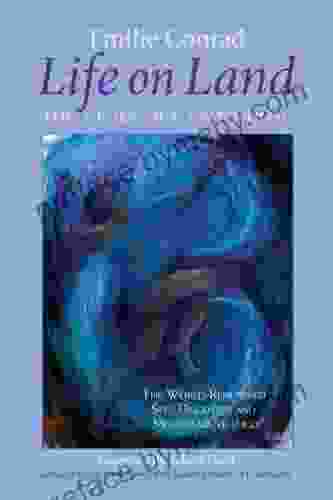
 Fletcher MitchellUnveiling the Revolutionary Continuum: A Journey of Self-Discovery and...
Fletcher MitchellUnveiling the Revolutionary Continuum: A Journey of Self-Discovery and... Stephen FosterFollow ·6.4k
Stephen FosterFollow ·6.4k Elliott CarterFollow ·13.6k
Elliott CarterFollow ·13.6k Jason HayesFollow ·17.5k
Jason HayesFollow ·17.5k Donovan CarterFollow ·7.1k
Donovan CarterFollow ·7.1k Ron BlairFollow ·14.5k
Ron BlairFollow ·14.5k Mason PowellFollow ·4.7k
Mason PowellFollow ·4.7k Hector BlairFollow ·9.1k
Hector BlairFollow ·9.1k Duane KellyFollow ·18k
Duane KellyFollow ·18k
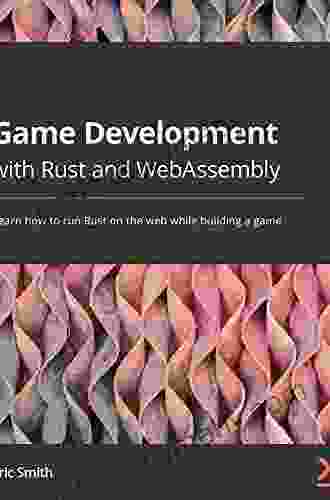
 Richard Adams
Richard AdamsGame Development with Rust and WebAssembly: A...
Are you passionate...

 David Baldacci
David BaldacciGendered Identity and Aspiration on the Globalized Shop...
: The Convergence of Gender, Identity, and...

 Natsume Sōseki
Natsume SōsekiFresh Eyes On Panama: A Captivating Exploration of a...
Panama, a country often overshadowed by its...
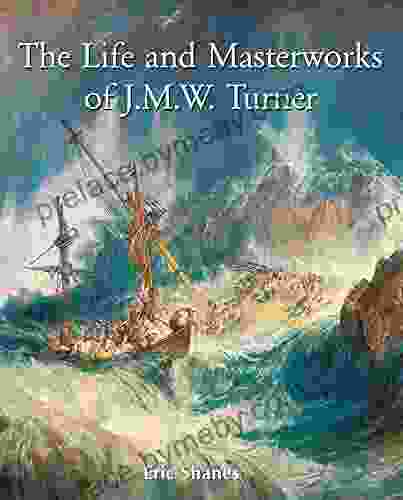
 Adrian Ward
Adrian WardThe Life and Masterworks of J.M.W. Turner: A Timeless...
The Man Behind the Masterpieces ...
5 out of 5
| Language | : | English |
| File size | : | 6030 KB |
| Text-to-Speech | : | Enabled |
| Screen Reader | : | Supported |
| Enhanced typesetting | : | Enabled |
| Word Wise | : | Enabled |
| Print length | : | 288 pages |


